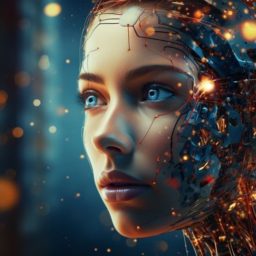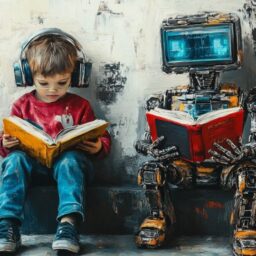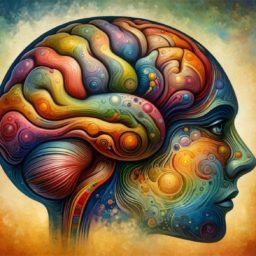
AustraliaAustriaBrazilCanadaChinaCzech RepublicEgyptFranceGermanyGlobalIndiaItalyJapanMexicoNetherlandsPolandSaudia ArabiaSingaporeSpainTurkeyUAEUnited KingdomUnited States As an Amazon Associate, I earn a small commission when you purchase a book via this site. Book Purchased: 22 September, 2020 Sense-making Methodology Reader: Selected Writings of Brenda Dervin Six Thinking Hats Tags: intelligence (23) | sense-making (42)Google Web Search Photo Credits: Midjourney (Public Domain)This page is part … Continue reading Sensemaking: What Makes Human Intelligence Essential in the Age of the Algorithm by Christian Madsbjerg

People can be extremely intelligent, have taken a critical thinking course and know logic inside and out. Yet they may just become clever debaters, not critical thinkers, because they are unwilling to look at their own biases. | Carol Wade Continue reading Biases and Critical Thinking Carol Wade

AI is neither artificial nor intelligent. Rather, artificial intelligence is both embodied and material, made from natural resources, fuel, human labor, infrastructures, logistics, histories, and classifications. AI systems are not autonomous, rational, or able to discern anything without extensive, computationally intensive training with large datasets or predefined rules and rewards. | Kate Crawford Continue reading AI Is Neither Artificial nor Intelligent Kate Crawford (2022)

Unintelligent people are more easily misled by other people, intelligent people are more easily misled by themselves. | Gurwinder Bhogal Continue reading The Intelligence Trap Gurwinder Bhogal

Natural intelligent beings evolve through natural selection, while artificial intelligent entities evolve through intentional design by those same intelligent beings. Credit: David Gurteen Tags: artificial intelligence (53) | David Gurteen (80) | intelligence (23) | natural intelligence (2)Google Web Search Photo Credits: Pixabay (Pixabay)This quotation is part of a blook on Conversational Leadership. It is one … Continue reading Natural Verses Artificial Intelligence David Gurteen

Intelligence: An emergent system’s ability to respond to its environment in order to improve its conditions, perpetuate itself and maximize its future freedom of action. | Richard Yonck Continue reading Intelligence: an Emergent System’s Ability to Respond to Its Environment Richard Yonck

Intelligence can be described as the ability to perceive or infer information, and to retain it as knowledge to be applied towards adaptive behaviors within an environment or context. | Wikipedia Continue reading What Is Intelligence? Wikipedia

In this book, Future Minds, Richard Yonck challenges our assumptions about intelligence — what it is, how it came to exist, and its place in the development of life on Earth and possibly throughout the cosmos. Taking a Big History perspective — over the 14 billion years from the Big Bang to the present and … Continue reading Future Minds: the Rise of Intelligence From the Big Bang to the End of the Universe by Richard Yonck

What Is Vibe Coding? The Spectrum of Intelligence Close Pop-up all posts in this chapter What’s the Vibe? Please be patient as this may take up to a minute to load… Close This chapter examines the role of artificial intelligence (AI) in knowledge management and conversational leadership, with a focus on chatbot technology. More specifically, … Continue reading Introduction: Artificial Intelligence Human-like intelligence?

Understanding intelligence is important in an era shaped by rapid technological growth. Confusion often arises from unclear ideas about what intelligence really means, making it hard to distinguish between natural and human-made intelligence. Exploring the various types of intelligence and their roles in living beings and technology helps make this complex topic easier to grasp. Continue reading The Spectrum of Intelligence There are many types of intelligence

The Spectrum of Intelligence The Relationship Between Intelligence and Evolution ** Close Pop-up all posts in this chapter What’s the Vibe? Please be patient as this may take up to a minute to load… Close Artificial intelligence fundamentally differs from natural intelligence in its origin and nature. Natural intelligence arises from biological processes, but AI … Continue reading Artificial and Natural Intelligence Exploring the essential difference between natural and artificial forms of intelligence

Artificial and Natural Intelligence Human Intelligence Close Pop-up all posts in this chapter What’s the Vibe? Please be patient as this may take up to a minute to load… Close Intelligence and evolution are deeply intertwined, shaping life on Earth. Understanding their complex relationship is crucial but challenging. Exploring how intelligence has evolved and impacted … Continue reading The Relationship Between Intelligence and Evolution ** Shaping life on earth

The Relationship Between Intelligence and Evolution ** Programmed Intelligence Close Pop-up all posts in this chapter What’s the Vibe? Please be patient as this may take up to a minute to load… Close Human intelligence is the capacity to acquire, process, and apply knowledge effectively, solving problems, adapting to new situations, and demonstrating creativity and … Continue reading Human Intelligence The capacity to acquire, process, and apply knowledge

Human Intelligence Animal Intelligence Close Pop-up all posts in this chapter What’s the Vibe? Please be patient as this may take up to a minute to load… Close Programmed intelligence is when a machine or software has limited abilities based on its original programming. It cannot learn or adapt on its own. Examples are basic … Continue reading Programmed Intelligence Is a thermostat or an electronic calculator intelligent?

Programmed Intelligence Biological Intelligence Close Pop-up all posts in this chapter What’s the Vibe? Please be patient as this may take up to a minute to load… Close Animal intelligence is the … Animal Intelligence Animal intelligence is … Animal intelligence is … Posts that link to this post The Spectrum of Intelligence There are many … Continue reading Animal Intelligence …

Animal Intelligence Systemic Intelligence Close Pop-up all posts in this chapter What’s the Vibe? Please be patient as this may take up to a minute to load… Close Biological intelligence is the natural cognitive abilities and adaptive behaviors of organisms, not including humans or animals, arising through evolution. Biological intelligence Biological Intelligence is the inherent … Continue reading Biological Intelligence The natural cognitive abilities and adaptive behaviors of organisms

Biological Intelligence Artificial Intelligence ** Close Pop-up all posts in this chapter What’s the Vibe? Please be patient as this may take up to a minute to load… Close Systemic intelligence is the emergent adaptive capacities that arise within complex systems comprised of interacting components. It is the system’s ability to self-organize, adapt, and respond … Continue reading Systemic Intelligence The adaptive, self-organizing ability within complex systems

Systemic Intelligence Why the Generative AI Intelligence Argument Is Irrelevant Close Pop-up all posts in this chapter What’s the Vibe? Please be patient as this may take up to a minute to load… Close Artificial Intelligence (AI) refers to the ability of machines or computer-controlled robots to perform tasks usually associated with human intelligence. Artificial … Continue reading Artificial Intelligence ** The ability of machines to perform tasks usually associated with human intelligence

The Nature of Consciousness Understanding 4E Cognition Close Pop-up all posts in this chapter What’s the Vibe? Please be patient as this may take up to a minute to load… Close The relationship between consciousness and intelligence is complex and not fully understood. Here’s a breakdown of their relationship: Definitions Overlap Consciousness and intelligence are … Continue reading The Relationship Between Consciousness and Intelligence ** Both concepts are multifaceted and the relationship is not well understood

Artificial Intelligence ** What Are Chatbots? Close Pop-up all posts in this chapter What’s the Vibe? Please be patient as this may take up to a minute to load… Close Artificial intelligence is evolving rapidly, reshaping our world. Some argue that AI isn’t truly intelligent because it lacks human-like consciousness and emotions. However, this narrow … Continue reading Why the Generative AI Intelligence Argument Is Irrelevant Redefining intelligence in the age of GenAI

Why the Generative AI Intelligence Argument Is Irrelevant Limitations of Chatbots Close Pop-up all posts in this chapter What’s the Vibe? Please be patient as this may take up to a minute to load… Close Chatbots may seem to possess human intelligence, but they are not intelligent in the same way that we are. It … Continue reading What Are Chatbots? Artificial intelligence programs designed to have conversations with humans






